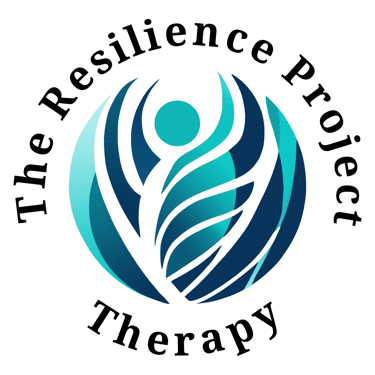The Surprising Link Between PTSD and OCD, And How EMDR Therapy Can Help
How PTSD can lead to OCD, and how EMDR therapy can treat both conditions by reprocessing traumatic memories.
Christian Gray Hering, LCSW
3/10/20243 min read


As a therapist specializing in trauma, I've seen firsthand how deeply traumatic experiences can impact the mind and body. One of the lesser-known consequences of trauma is its ability to contribute to the development of obsessive-compulsive disorder (OCD). While PTSD and OCD are distinct conditions, they can become intricately intertwined, exacerbating each other's symptoms and creating a vicious cycle of distress.
The connection between PTSD and OCD lies in the way our brains process and respond to trauma. When we experience a traumatic event, our survival instincts kick into high gear, flooding our bodies with stress hormones and triggering a fight-or-flight response. This heightened state of arousal can become ingrained in our neural pathways, leading to a persistent sense of danger and hypervigilance, even in seemingly safe situations.
For individuals with PTSD, intrusive thoughts, flashbacks, and disturbing memories related to the trauma can become obsessive, causing significant distress and anxiety. In an attempt to alleviate this distress, they may develop compulsive behaviors or rituals, such as excessive cleaning, checking, or avoidance of certain situations or objects that trigger traumatic reminders.
These compulsions can provide temporary relief from the anxiety caused by the intrusive thoughts, but they ultimately reinforce the obsessive thought patterns and perpetuate the cycle of OCD. Over time, the compulsions can become increasingly time-consuming and disruptive, interfering with daily functioning and overall quality of life.
Fortunately, there is an effective treatment approach that can address both PTSD and OCD simultaneously: Eye Movement Desensitization and Reprocessing (EMDR) therapy. EMDR is a powerful form of psychotherapy that helps individuals process and integrate traumatic memories in a safe and controlled environment.
During EMDR sessions, clients are guided through a series of bilateral eye movements or other forms of alternating bilateral stimulation, such as tapping or auditory tones. This dual attention process facilitates the adaptive processing of distressing memories and beliefs, allowing the brain to integrate and resolve the traumatic experience.
By targeting the root cause of the trauma, EMDR can effectively reduce the intensity of intrusive thoughts, flashbacks, and hyperarousal associated with PTSD. As these PTSD symptoms diminish, the compulsive behaviors and obsessive thoughts related to OCD often begin to subside as well.
One of the key advantages of EMDR is its ability to address the underlying emotional and cognitive components of both PTSD and OCD. By reprocessing the traumatic memories and challenging the accompanying negative beliefs and thought patterns, EMDR can alleviate the distress and anxiety that fuel the obsessive-compulsive cycle.
Remarkable transformations have been seen in clients who have undergone EMDR therapy for their co-occurring PTSD and OCD. Many report a significant reduction in intrusive thoughts, flashbacks, and compulsive behaviors, enabling them to regain a sense of control and freedom in their daily lives.
It's important to note that EMDR is not a quick fix but rather a structured and comprehensive treatment approach that requires commitment and dedication from both the therapist and the client. The duration of treatment can vary depending on the complexity and severity of the trauma, as well as the individual's unique needs and circumstances.
However, for those who persevere through the process, the rewards can be truly life-changing. By addressing the root causes of their distress and reprocessing the traumatic memories, individuals can find relief from the debilitating symptoms of PTSD and OCD, and ultimately reclaim their sense of well-being and overall quality of life.
If you or someone you know is struggling with PTSD, OCD, or both, I encourage you to seek professional help from a qualified EMDR therapist. With the right support and treatment, it is possible to overcome the impact of trauma and regain control over your thoughts and behaviors.
Remember, healing is a journey, but with the right tools and guidance, it is absolutely achievable.
Sources Cited:
The Resilience Project Therapy
Mailing
P.O. Box 832182
Richardson, TX 75083
Contacts








